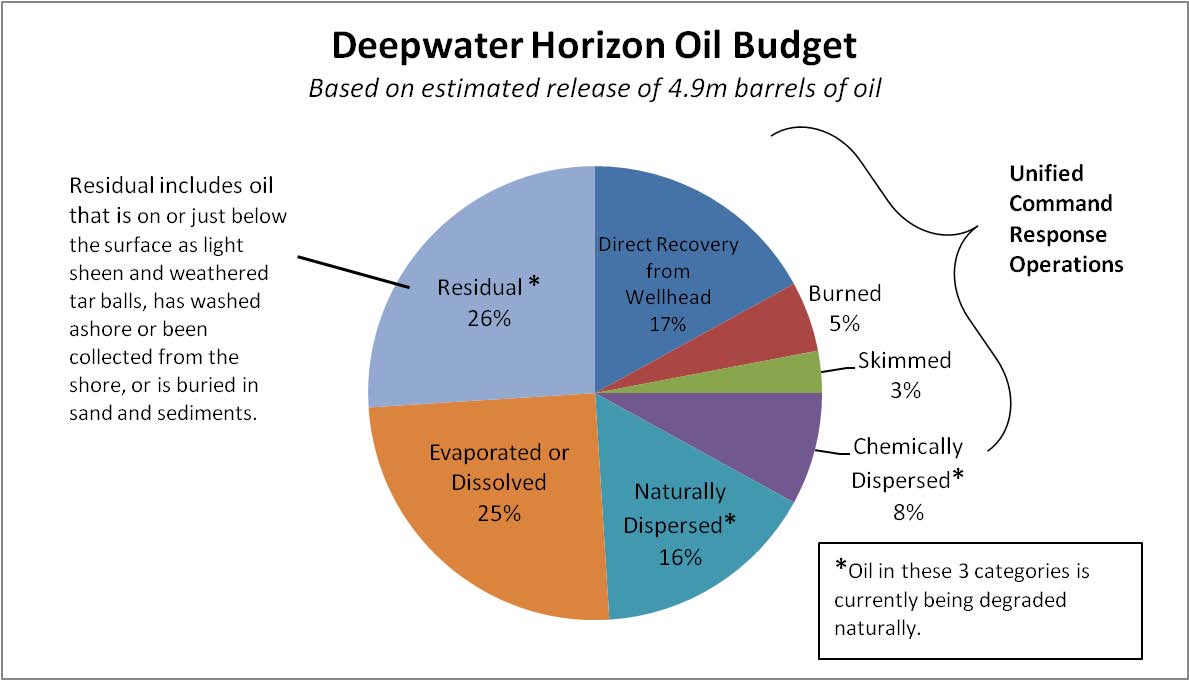
Today, a panel of government scientists released a report which said that the vast majority of the oil from the Deepwater Horizon oil spill has either evaporated or been burned, skimmed, recovered from the wellhead or dispersed much of which is in the process of being degraded. A significant amount of this is the direct result of the federal government’s aggressive response to the spill.
The chart below outlines the breakdown of what has happened to the oil released into the Gulf of Mexico since the oil spill began in April:
These interagency findings were generated using a scientific tool called the Oil Budget Calculator, which employs a combination of direct measurements and the best scientific estimates available. The calculator is based on 4.9 million barrels of oil released into the Gulf, the government’s latest estimates of the flow rate from Monday. More than 25 of the best government and independent scientists contributed to or reviewed the calculator and its calculation methods. Scientists from the National Oceanic and Atmospheric Administration (NOAA), the Environmental Protection Agency (EPA) and the Department of Energy (DOE), as well as academic scientists are continuing to work to refine these calculations.
While we welcome the news contained in this report, we continue to be extremely concerned about what this oil spill means for the health of the Gulf ecosystem and the millions of people who depend on the Gulf for their livelihoods and enjoyment. To that end, our response effort will continue until the well is killed, the oil is cleaned up and until all of the people are made whole again.
For more information about the ongoing Administration-wide response to BP Oil Spill, visit RestoreTheGulf.gov.
Heather Zichal is the Deputy Assistant to the President for Energy and Climate Change



